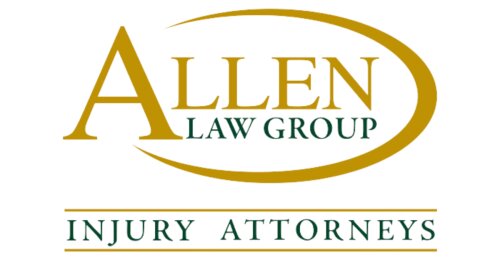Best Property Insurance Lawyers in Chicago
Share your needs with us, get contacted by law firms.
Free. Takes 2 min.
List of the best lawyers in Chicago, United States
About Property Insurance Law in Chicago, United States
Property insurance in Chicago is designed to protect property owners from financial losses due to damage, theft, or other unforeseen events that can affect properties. This form of insurance covers various types of properties including residential homes, commercial properties, and rental properties. Property insurance policies usually cover losses caused by events such as fire, theft, vandalism, and certain natural disasters. In Chicago, property insurance is particularly vital due to the city's dense urban environment and variable weather conditions that can pose potential risks to properties.
Why You May Need a Lawyer
Property insurance can be complex, and there are several circumstances where legal help may be beneficial:
- Claim Denials: If your insurance claim is denied, a lawyer can help you understand the denial reasons and assist in filing an appeal.
- Claim Disputes: Disagreements over the claim amount settled by the insurers often require legal intervention to ensure fair compensation.
- Policy Interpretation: Understanding the detailed terms and conditions of a policy can be challenging; legal advice ensures you comprehend your coverage.
- Fraudulent Practices: If you suspect fraudulent practices by insurers, legal counsel can provide guidance on how to proceed.
- Complex Claims: Some cases, especially those involving large commercial properties, can be intricate and necessitate legal expertise for better outcomes.
Local Laws Overview
Property insurance laws in Chicago are governed by both Illinois state laws and city ordinances. Key aspects include:
- Standard Fire Policy: Illinois mandates a standard fire policy that all property insurance must adhere to, establishing basic coverages.
- Fair Claims Practice Act: This state legislation aims to ensure fair settlement practices by insurers and includes timelines and standards for claim handling.
- Disclosure Requirements: Insurers must provide clear disclosures about policy terms, exclusions, and endorsements for informed decision-making.
- Urban Property Insurance: Specific provisions address the unique challenges of insuring urban properties, including theft and vandalism coverage.
Frequently Asked Questions
1. What does property insurance typically cover in Chicago?
Property insurance typically covers damages from fire, theft, vandalism, and certain weather-related events. Policies may vary, so check specific coverage details with your insurer.
2. Can I be covered for flood damage in Chicago?
Flood damage is generally not covered under standard property insurance policies. You may need to purchase separate flood insurance, especially if you live in a designated flood zone.
3. What should I do if my claim is denied?
First, review the denial letter to understand the reasons. You can appeal the decision and may consider consulting a lawyer who specializes in insurance claims for assistance.
4. How can I ensure I have adequate property insurance coverage?
Conduct a thorough evaluation of your property’s value and risks and consult with your insurer to ensure your coverage adequately reflects your protection needs.
5. Is there a time limit to file a property insurance claim in Chicago?
Yes, it's common for policies to have specific time limits for filing claims, often within a year from the date of the incident. Check your policy details or consult your insurer.
6. What are some common reasons for claim denials?
Claims may be denied for reasons such as lack of policy coverage, misrepresentation, failure to maintain the property, or missing documentation.
7. Can my property insurance be canceled by the insurer?
Yes, insurers can cancel policies for reasons such as non-payment of premiums, gross negligence, or fraudulent claims. However, they must provide notice according to state law.
8. How are premium rates determined for property insurance in Chicago?
Premium rates are influenced by factors such as the property's location, value, age, construction type, and claims history.
9. What are endorsements in property insurance policies?
Endorsements are additions or modifications to the policy that provide extra coverage for specific items or scenarios not covered in the standard policy.
10. Do I need property insurance if I rent out my property?
Yes, landlord insurance is recommended for rental properties to cover property damage and liability claims arising from tenant occupancy.
Additional Resources
For additional assistance, you may consider reaching out to the following resources:
- Illinois Department of Insurance: Provides consumer assistance, information on your rights, and can address complaints against insurers.
- City of Chicago's official website: Offers guidance on local regulations and assistance for property owners in the area.
- Legal Aid Chicago: Provides free legal aid services for those who qualify and need assistance with insurance matters.
Next Steps
If you need legal assistance with property insurance in Chicago, consider the following steps:
- Consultation: Schedule a consultation with a lawyer specializing in insurance law to discuss your situation and explore your options.
- Documentation: Gather and keep all relevant documents, such as your insurance policy, claim correspondence, and any other related paperwork.
- Contact the Illinois Department of Insurance: They can provide guidance and intervention, if necessary, in disputes with insurers.
- Community Resources: Utilize local legal aid services if you need cost-effective legal resources or assistance.
Lawzana helps you find the best lawyers and law firms in Chicago through a curated and pre-screened list of qualified legal professionals. Our platform offers rankings and detailed profiles of attorneys and law firms, allowing you to compare based on practice areas, including Property Insurance, experience, and client feedback.
Each profile includes a description of the firm's areas of practice, client reviews, team members and partners, year of establishment, spoken languages, office locations, contact information, social media presence, and any published articles or resources. Most firms on our platform speak English and are experienced in both local and international legal matters.
Get a quote from top-rated law firms in Chicago, United States — quickly, securely, and without unnecessary hassle.
Disclaimer:
The information provided on this page is for general informational purposes only and does not constitute legal advice. While we strive to ensure the accuracy and relevance of the content, legal information may change over time, and interpretations of the law can vary. You should always consult with a qualified legal professional for advice specific to your situation.
We disclaim all liability for actions taken or not taken based on the content of this page. If you believe any information is incorrect or outdated, please contact us, and we will review and update it where appropriate.










